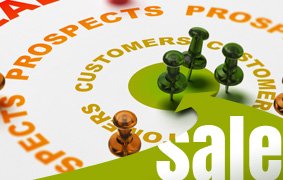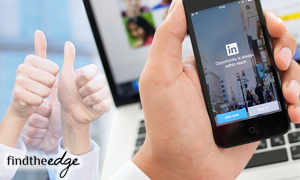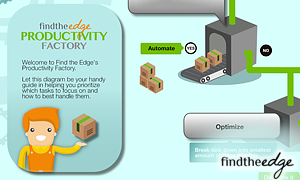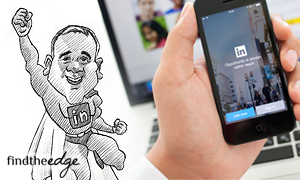 It’s estimated that the average person in the Western World is exposed to about 3,000 marketing messages every day – so it’s no wonder your target audience is building a natural resistance to sales speak.
It’s estimated that the average person in the Western World is exposed to about 3,000 marketing messages every day – so it’s no wonder your target audience is building a natural resistance to sales speak.
Everyone – from the CEO of a multinational corporation through to a teenager chatting on the internet – has been forced to develop a natural ability to filter out the various sales propositions, adverts and pitches they receive on a daily basis. There’s simply too many, and they're overwhelming.
This means the traditional selling methods are losing traction fast and are far less effective than they used to be. As an example, a recent study by Emailvision found that 75% of businesspeople say they resent a brand if they send too many ‘marketing' emails.So how can you stay in regular contact, and get your message across, without it coming over as a constant sales pitch?
By educating rather than selling.I’m not aware of too many people who enjoy being sold to, so it makes sense to try and engage people in another way.
This is where education comes in.If someone's offering you free information – that can add value to your business or improve your life and is totally relevant and current – why wouldn't you want to hear what they've got to say?
Educating your audience is a non-threatening way to get your messages across and hopefully create a mutually beneficial long-term relationship.
How to educate into a sale
1. Establish yourself as an expertI've talked about this in a past post, but the benefits of building your reputation and establishing yourself as someone who can be trusted cannot be overstated.
The more respected you are within your niche; the more likely it is that people will be willing to listen to what you have to say and give you some of their precious time.2. Think about the audienceTake a step back, and put yourself in the shoes of your audience. This is where a good buyer persona comes in. What do you think they want when they subconsciously agree to give you some of their time?Information, ideas and advice that could actually make a positive difference to their business or their life might be a good place to start.3. Establish your funnelIt’s important to note that selling isn’t evil – if we don’t sell we don’t eat. Short-term selling, however, is about going in for the kill and taking no prisoners. This approach can lead to ‘buyers remorse,' and the sale falling out of bed later in the process.Sustainable selling involves the process of nurturing, gaining trust and rapport, and then – when the time is right – introducing your product or service as a solution to their problem, or as a way to simply enhance their life.Unless you are selling a low value product, or you manage to connect with the small percentage of people who just happen to need your product or service at the time you engage, your audience will automatically build walls if you miss out the important nurturing process and go straight in for the sell.
This is where a good funnel comes in. When people reach the right level of engagement in the process, it’s time to point them in the appropriate direction and suggest your products or services.
Exactly when this stage is reached can, of course, be tested to find the optimum sweet spot for an audience.4. Learn from AppleApple is an example of a company that has successfully applied these principles to its customers, and benefitted heavily from the resultsApple stores have a variety of products available that visitors can try, and employees are constantly circling to educate the potential buyers about how the tech on display works.
There's no pushing here – users are simply educated about the products and how they could improve their lives. The shops are there to let users test drive the products as much as they are to create immediate sales.
The ‘Genius Bar' – which is a free in-store help service for Apple customers – is a particularly good example of how the company educates users to encourage them to use their products and buy more.
50,000 people visit the ‘Genius Bars' each day, and a recent study found that 60% of those who used them said they were likely to purchase another Apple product as a result.
As Apple have found, creating amazing products and educating your audience can be a very profitable long-term exercise.





